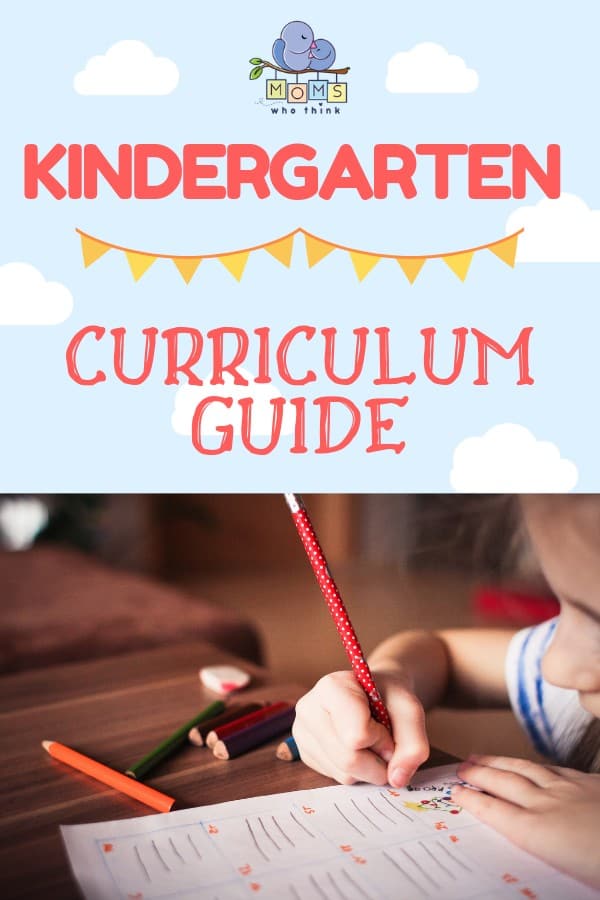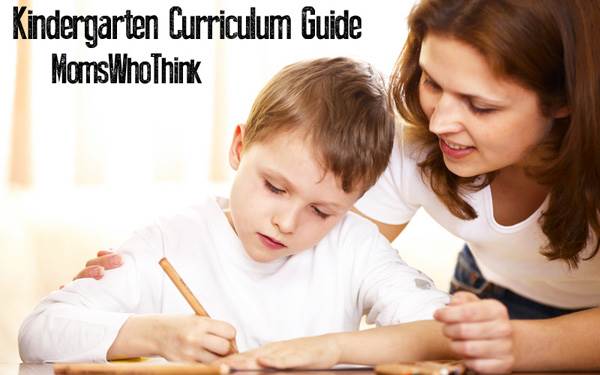During your child's first year of school, you will see them learn and grow by leaps and bounds as their world expands once again.
In order to properly prepare your child for this experience, you will want to familiarize yourself with the curricula that they will be expected to follow in school.
Knowing what's on the horizon for your child will also help you to provide the proper support for lessons at home.

Although the specifics of the curriculum vary between schools, states, and teachers, the details remain the same. By the time your child has completed their kindergarten year of school, they will be expected to be familiar with the following:
Kindergarten Language Arts
- Recognize and write all of the letters of the alphabet in upper and lowercase forms
- Write their first and last name
- Learn sounds corresponding to vowels and consonants
- Use initial consonant sounds and sound patterns to read words (for example, f + an = fan; r + an = ran)
- Identify several sight words, including names of colors
- Recognize and use rhyming words
- Retell a story, including details
- Put events of a story in order
- Write simple sentences using sight words and phonics
Kindergarten Listening and Communication
- Listen attentively
- Raise hands or wait to speak
- Act on instruction and repeat spoken directions
- Engage in question-and-answer dialogue with classmates and teachers
- Work as a team on projects or problem-solving
Kindergarten Math
- Sort and classify objects using one or more attributes
- Recognize and write numbers to 30
- Count orally by ones, five, and tens
- Name ordinal numbers first through tenth
- Add and subtract using manipulatives (Cheerios, candy, or other objects that can be picked up)
- Understand spatial relationships (top/bottom, near/far, before/behind)
- Compare quantities by estimating, weighing, and measuring
- Use graphs to gather information
- Recognize patterns and shapes
- Tell time to the nearest hour
- Count coins
- Recite the days of the week and months of the year
Other Skills for Kindergarten
- Art and music: Experiment with different materials and methods
- Health and physical education: Learn essentials about nutrition and functions of the body
- Social studies: Identify major religious and civic holidays and historical figures; appreciate similarities and differences across individuals, families and traditions; understand different roles in communities
- Science: Use all senses to observe and experiment with plants and animals, weather, and temperature
You can work with your child at home on some of these concepts if you choose. This will help you to stay involved in your child's learning and to reinforce those lessons at home. Good education begins with the foundation that you lay in the home, after all. Don't be afraid to continue the lessons and the practice as a part of your day-to-day life.
The more you connect with your child over their scholastic material, the better your relationship and their academic performance will be.
Social Skills and Kindergarten
In addition to academics, your child will continue developing their social skills in the classroom through regular engagement with their peers. For some children, this will be the first time they form friendships. They may also find that there's a child or two that they don't get along with.
It's your responsibility to make sure your child is socially well-equipped upon entering kindergarten. They should know some basic manners, like using their inside voice and sharing appropriately with their peers. If they have older siblings or attended preschool, they should already have plenty of practice. Otherwise, you'll need to find alternative ways for them to develop their social skills appropriately.
Keep communication lines open with their teacher in case there are any problems. If your child is having difficulty socializing appropriately with their peers, their teacher will generally be quick to inform you. Tackle these issues in a way that makes sense for your child. Keep it simple and to the point. Don't be overly harsh, but be firm enough to get your point across.
By knowing what to expect for your child in kindergarten, you'll be able to follow them on their educational journey with ease. Kindergarten can be a scary time for both parent and child, so try not to stress too much. Work on your child's existing skills in advance of kindergarten, keep tabs on their academic performance, and you'll be golden.
The image featured at the top of this post is ©Momentum R | Dreamstime.com – License / Original
